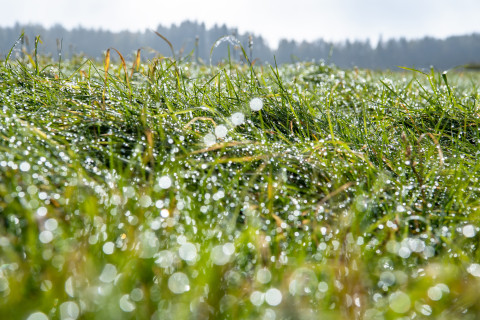The doctoral dissertation in the field of Environmental Science will be examined at the Faculty of Science and forestry, Kuopio Campus and online.
What is the topic of your doctoral research? Why is it important to study the topic?
This thesis explores whether the process of pant domestication may have affected plant volatile responses to (i) feeding from a specialist herbivore; (ii) elevated ozone; (iii) both stresses sequentially. It also examines whether volatile-mediated plant-plant interactions are more effective in wild than cultivated varieties and evaluates whether herbivore-induced volatiles affect defence, growth and reproduction of receiver plants. In nature, it is not only plants that release volatiles, but herbivorous insects also rely on volatile emissions for their survival. Therefore, to further explore plant responses to different biotic stimuli, the thesis ends by investigating whether plants eavesdrop on insect-derived volatiles and prime their defences in response. This thesis was accomplished through four years of research on different wild and cultivated Brassicaeous plants and their antagonistic specialist insect herbivore Plutella xylostella.
What are the key findings or observations of your doctoral research?
The findings demonstrated that wild and cultivated Brassicaceae emit similar quantities of constitutive and herbivore-induced volatiles. However, the complexity of volatile blends was reduced by domestication, especially by reducing diversity and quantities of nitrogen and sulphur containing compounds. Wild plants appeared more responsive to elevated ozone than cultivated plants, with their terpene emissions more affected by elevated ozone than cultivated plants. The work also showed that plant volatiles influenced plant photosynthetic activity, and reproduction with clear acceleration and increase in flower production. Finally, the thesis supported that as for herbivore-induced plant volatiles, insect-emitted volatiles could affect plant defence and resistance to subsequent herbivory. The thesis explores relatively new topic in the field of plant-to-plant communication and results represent state of the art for the field. The thesis represents a very significant contribution to the field, addressing strong fundamental science which has important applications to agriculture.
How can the results of your doctoral research be utilised in practice?
I found that wild plants were better defended against herbivore than cultivated varieties. Cultivated plants also appears more tolerant to polluted elevated ozone air. Such findings could serve for creating better adapted varieties and preserving wild plant diversity for their genetic potential, as well as to evaluate ecosystem loss under ongoing climatic changes, and establish appropriate measures for the protection of ecosystems. Also I found that exposure to volatiles from herbivore-damaged neighbours enhances plant defence, and reproduction which may have potential application for successful pest management strategies. Examples include push–pull systems, synthetic odorant traps, and creation of crop cultivars/varieties with modified volatile profiles to supplement chemical pesticide applications and enable more sustainable agricultural practices.
What are the key research methods and materials used in your doctoral research?
This thesis was accomplished through four years of research at the University of Eastern Finland and in collaboration with the Plant Physiology Unit of the Department of Life Sciences and Systems Biology, University of Turin where I went for 4 months. The work relies on having adopted a multidisciplinary approach, spanning from evolutionary ecology to behavioral and chemical ecology and by performing a great amount of laboratory analyses. I realised a comparative studies on wild and cultivated plants, in which I collected volatile emissions on plants under abiotic and abiotic stresses (insect herbivory and/or elevated ozone). The aim was to determine whether wild and cultivated plants respond with same volatile blends to those stresses. I also explored whether volatiles from plants and insects affect plant defence, growth and reproduction. To achieve that, I exposed plants to these volatiles and performed behavioural experiments and chemical analyses (plant membrane electric potential measurement, gene expressions, collection of volatile emissions, oviposition and feeding essays, net photosynthesis rate measurements, and assessing number of flower produced).The dissertation represents a significantly robust amount of research which result with 3 published research papers, and 2 submitted.
The doctoral dissertation of Agnès Brosset, MSc, entitled Responses of wild and cultivated Brassicaceous plants to diverse abiotic and biotic stimuli, will be examined at the Faculty of Science and Forestry. The Opponent will be Research associate, Rieta Gols, Wageningen University and Research, Laboratory of Entomology, and the Custos will be Professor James Blande, University of Eastern Finland. Language of the public defence is English.
- Public examination online (coming)
- Dissertation book online
- Photo available for download





